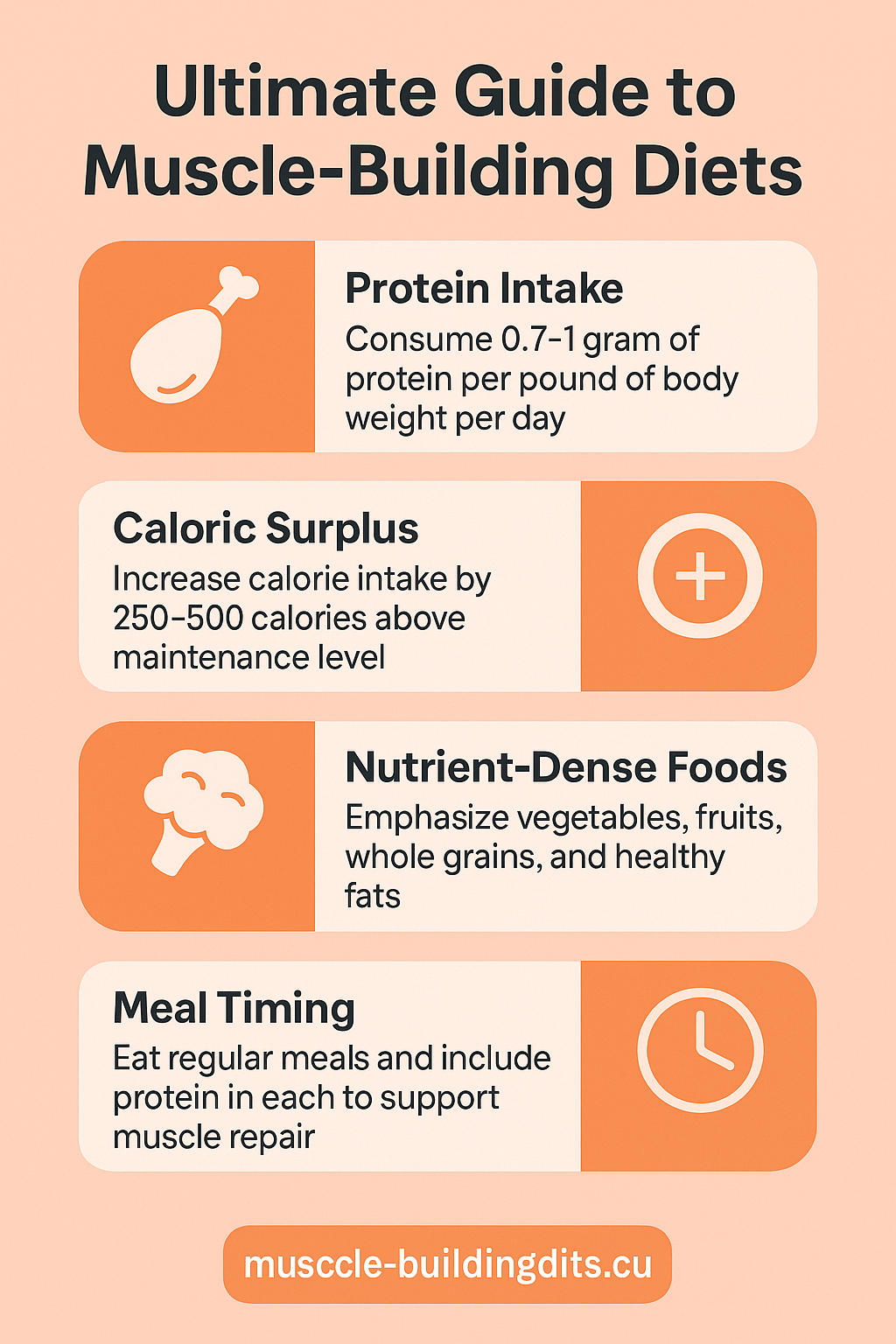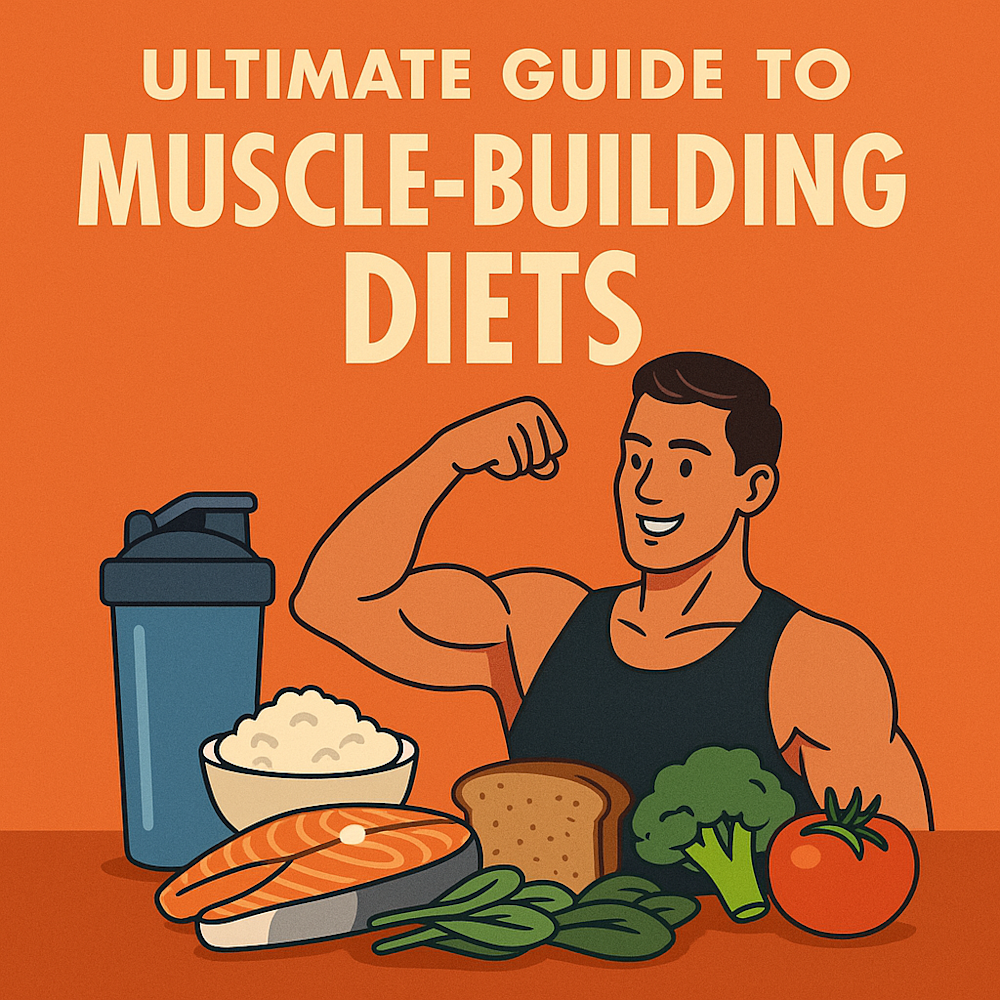Bulking 101: Your Comprehensive Guide to the Best Muscle-Building Diet
The importance of nutrition in your muscle-building journey
The role of macro and micro-nutrients in muscle growth
Understanding nutrient timing and meal frequency for optimal muscle gains
Adjusting your diet content depending on your muscle growth goals
The benefits of staying hydrated for muscle health and growth
Why Nutrition Is Essential for Building Muscle
In the world of muscle-building, your progress doesn’t just happen in the gym—it starts in the kitchen. You can smash the weights daily, but without the right nutrition, your gains will be limited. Building muscle requires not only consistent training, but a diet rich in quality fuel to support recovery, repair, and growth.
Macronutrients and Micronutrients: Your Muscle-Building Power Team
To pack on lean muscle mass, you need to understand the role of macronutrients (macros) and micronutrients (micros) in your diet.
Macronutrients:
Protein – the building blocks of muscle (chicken, eggs, whey, tofu)
Carbohydrates – your body’s preferred energy source (rice, oats, sweet potatoes)
Fats – crucial for hormone production and inflammation control (avocados, nuts, olive oil)
Micronutrients:
Vitamins and minerals that support recovery, metabolism, and immune function. Think leafy greens, colourful fruits, nuts, seeds, and whole grains.
A well-balanced bulking diet requires both macro precision and micro diversity. Ignoring either can stall progress or harm recovery.
Nutrient Timing and Meal Frequency: The Truth Behind the Myths
Forget the outdated rule that you must eat every 2-3 hours or that there's only a 30-minute “anabolic window” post-workout. Here's what you really need to know:
Post-workout protein does help muscle recovery, but your body remains in a receptive state for several hours.
Meal frequency can be flexible. Whether you eat 3 large meals or 6 smaller ones, it’s your total calorie and macronutrient intake over the day that matters most.
The key is consistency and eating in a way that fits your routine, appetite, and preferences.
Adjusting Your Bulking Diet to Your Goals
Not every bulking plan fits all. Your diet must be tailored to your goals, whether you’re going for a clean bulk, lean mass gain, or traditional mass-building phase.
To build muscle without excessive fat:
Focus on lean proteins (chicken breast, Greek yogurt, fish)
Opt for complex carbs (quinoa, oats, brown rice)
Don’t skip healthy fats—just watch the portions
Add nutrient-rich vegetables and fruits to ensure vitamin and mineral intake
Individual results will vary depending on age, metabolism, training style, genetics, and gender, so listen to your body and adjust your diet as you grow.
Hydration: The Forgotten Key to Muscle Growth
Muscle tissue is made of roughly 75% water, and proper hydration plays a massive role in:
Nutrient transportation
Joint lubrication
Muscle function and recovery
Without enough water, you're setting yourself up for fatigue, cramps, and slower gains. Drink throughout the day—not just around your workouts.

From a Personal Trainer’s View: Eat Big, Grow Smart
As your loyal Scouse PT, let me say this loud and clear—training builds muscle, but eating fuels the process. It's not just about stuffing your face with calories. It’s about:
Hitting your macros with precision
Staying hydrated
Timing meals based on lifestyle
Choosing real, whole foods that support your health and growth
Remember, bulking isn’t an excuse to eat junk—it’s a chance to build quality mass with smart nutrition choices. Train hard, eat well, and give your body the resources it needs to grow.
Best Foods to Include in a Bulking Diet
Looking to fill your plate with muscle-building foods? Start with:
Protein: chicken breast, lean beef, fish, eggs, protein powder
Carbs: oats, rice, whole grain pasta, sweet potatoes
Fats: peanut butter, olive oil, almonds, chia seeds
Extras: spinach, berries, broccoli, avocado, yogurt
These foods offer a solid foundation for building clean muscle mass and keeping your energy levels high.
How Many Calories Should You Eat to Bulk?
A good starting point is to eat 10–20% above your maintenance calories. For example:
Maintenance = 2,500 calories
Bulking target = 2,750–3,000 calories daily
Track your progress every 1–2 weeks and adjust based on weight gain and gym performance. Aim to gain 0.25–0.5kg per week to minimise fat gain.
Common Bulking Mistakes to Avoid
Don’t fall into these traps:
Eating too few calories
Relying on “dirty bulks” full of processed junk
Ignoring fiber and micronutrients
Skipping meals or training inconsistently
Not drinking enough water
The best results come from consistency, patience, and a quality-first approach to eating.
Ready to Bulk Like a Pro?
So there you have it, lads and lasses—bulking done right. Muscle growth doesn’t come from lifting alone. It comes from fueling your body with purpose, tracking your intake, and respecting your recovery.
Eat big, but eat smart. Stay hydrated, lift heavy, and always remember—the gains don’t just come from what you do in the gym, but what you put on your plate.
Now get out there, track your macros, and grow that muscle like a legend. Let’s keep those gains going, Liverpool style!
